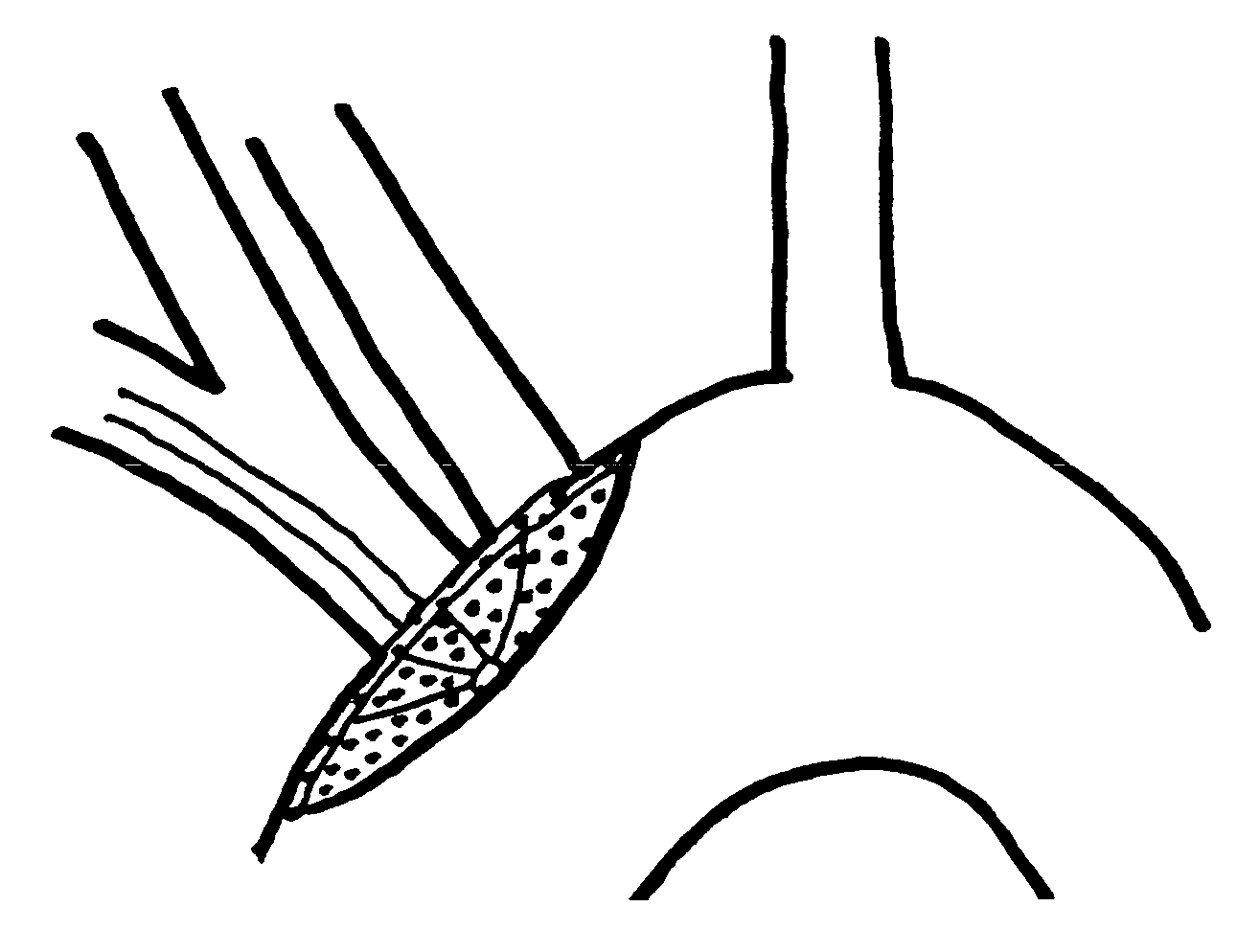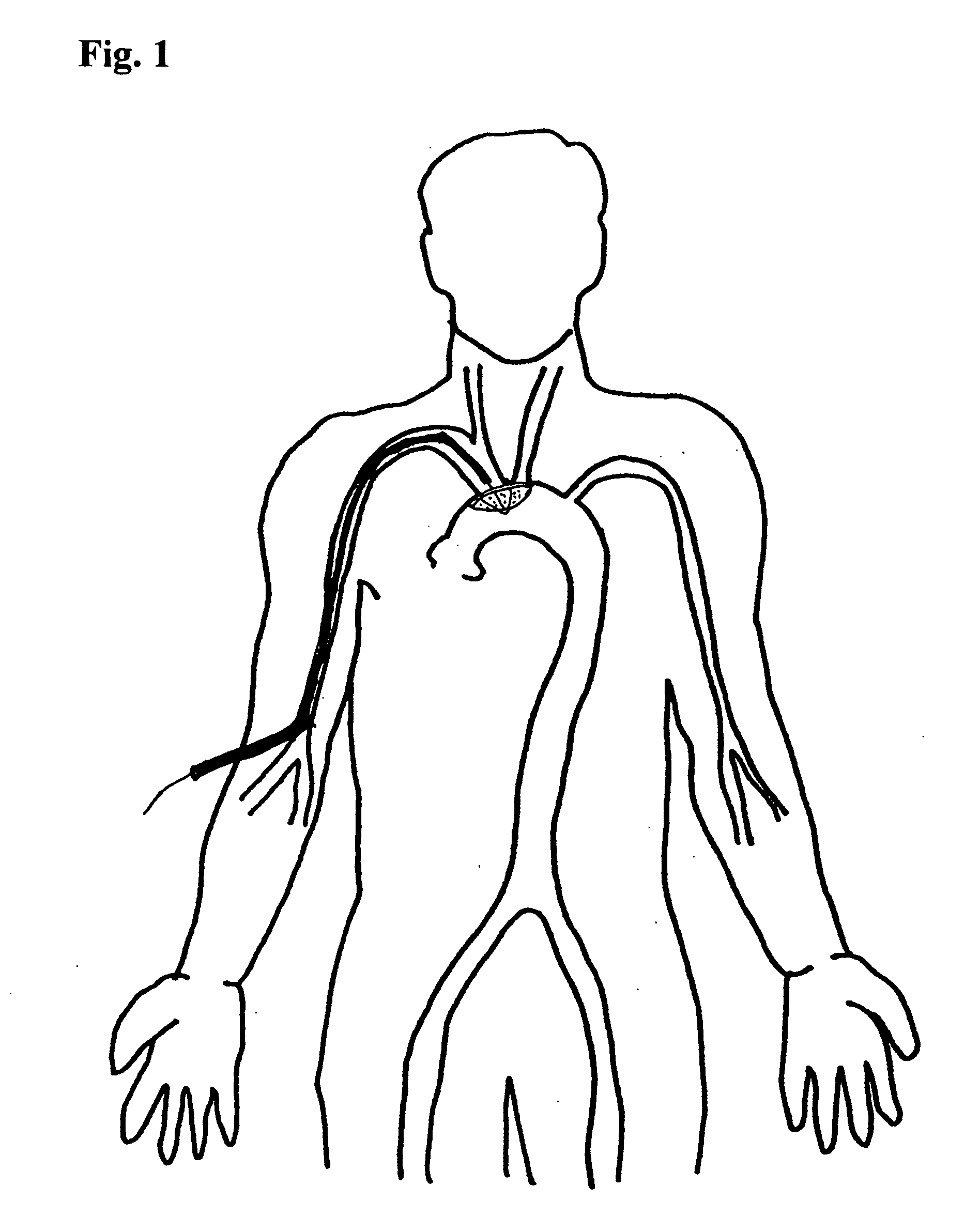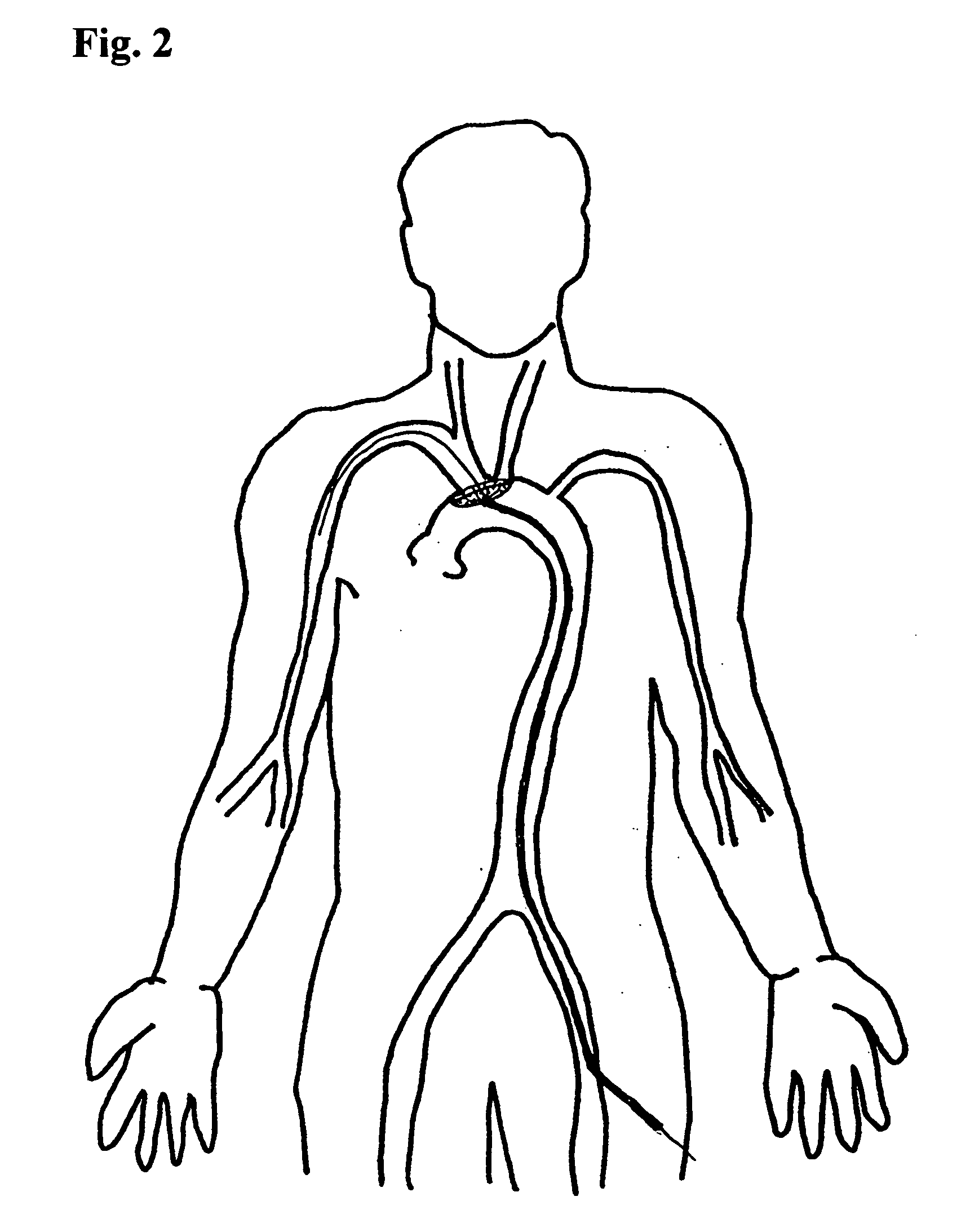Embolic protection device and method of use
a protection device and a technology of a protective device, applied in the field of embolism protection devices and methods of use, can solve the problems of stroke or even death, inadequacies of the present art, and difficulty in placement and retrieval,
- Summary
- Abstract
- Description
- Claims
- Application Information
AI Technical Summary
Problems solved by technology
Method used
Image
Examples
Embodiment Construction
[0009]The deflector (“umbrella”) of the present invention is positioned prior to any manipulation of the heart or thoracic aorta. It is simple to place and carries only the risk of catheterizing the aorta through the arm or leg, which is minimal. The umbrella is opened in the thoracic aorta and positioned to cover the ostia of both the brachiocephalic and left common carotid arteries. This position prevents clots or debris from entering the cerebral circulation through either the right or left carotid arteries with one simple device. Any debris from the cardiac or aortic procedure is deflected downstream. After the procedure is complete, the umbrella is inverted by means of a sheath extended over the catheter wire, which then wholly or partially covers the inverted umbrella prior to withdrawal. Should any clot or debris be attached to the outer side of the umbrella, it will be captured in the inverted umbrella and withdrawn. A major advantage of the device is that one size fits all,...
PUM
 Login to View More
Login to View More Abstract
Description
Claims
Application Information
 Login to View More
Login to View More - R&D
- Intellectual Property
- Life Sciences
- Materials
- Tech Scout
- Unparalleled Data Quality
- Higher Quality Content
- 60% Fewer Hallucinations
Browse by: Latest US Patents, China's latest patents, Technical Efficacy Thesaurus, Application Domain, Technology Topic, Popular Technical Reports.
© 2025 PatSnap. All rights reserved.Legal|Privacy policy|Modern Slavery Act Transparency Statement|Sitemap|About US| Contact US: help@patsnap.com



